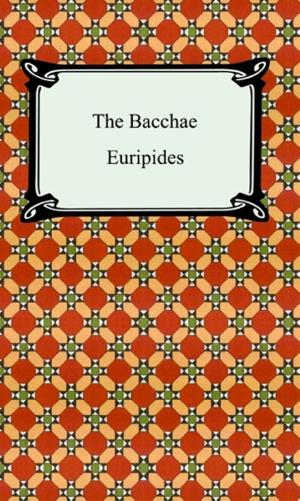| Author: | Euripides | ISBN: | 9781420904062 |
| Publisher: | Neeland Media LLC | Publication: | December 15, 2009 |
| Imprint: | Digireads.com Publishing | Language: | English |
| Author: | Euripides |
| ISBN: | 9781420904062 |
| Publisher: | Neeland Media LLC |
| Publication: | December 15, 2009 |
| Imprint: | Digireads.com Publishing |
| Language: | English |
Euripides, the youngest of the trio of great Greek tragedians was born at Salamis in 480 B.C., on the day when the Greeks won their momentous naval victory there over the fleet of the Persians. The precise social status of his parents is not clear but he received a good education, was early distinguished as an athlete, and showed talent in painting and oratory. He was a fellow student of Pericles, and his dramas show the influence of the philosophical ideas of Anaxagoras and of Socrates, with whom he was personally intimate. Like Socrates, he was accused of impiety, and this, along with domestic infelicity, has been supposed to afford a motive for his withdrawal from Athens, first to Magnesia and later to the court of Archelaues in Macedonia where he died in 406 B.C.Euripides's "Hippolytus" is the story of its title character, the son of Theseus and Hippolyta, who has scorn love and devoted himself to hunting and the Goddess of the hunt, Artemis. For this, Aphrodite, the Goddess of love has sought to destroy Hippolytus.
Euripides, the youngest of the trio of great Greek tragedians was born at Salamis in 480 B.C., on the day when the Greeks won their momentous naval victory there over the fleet of the Persians. The precise social status of his parents is not clear but he received a good education, was early distinguished as an athlete, and showed talent in painting and oratory. He was a fellow student of Pericles, and his dramas show the influence of the philosophical ideas of Anaxagoras and of Socrates, with whom he was personally intimate. Like Socrates, he was accused of impiety, and this, along with domestic infelicity, has been supposed to afford a motive for his withdrawal from Athens, first to Magnesia and later to the court of Archelaues in Macedonia where he died in 406 B.C.Euripides's "Hippolytus" is the story of its title character, the son of Theseus and Hippolyta, who has scorn love and devoted himself to hunting and the Goddess of the hunt, Artemis. For this, Aphrodite, the Goddess of love has sought to destroy Hippolytus.















